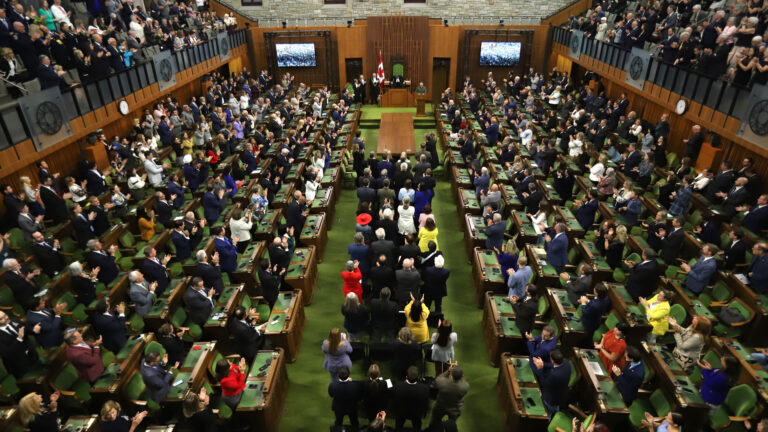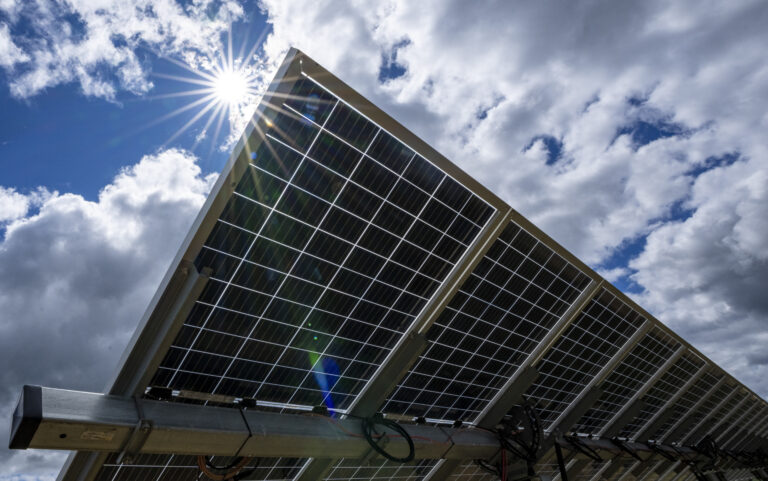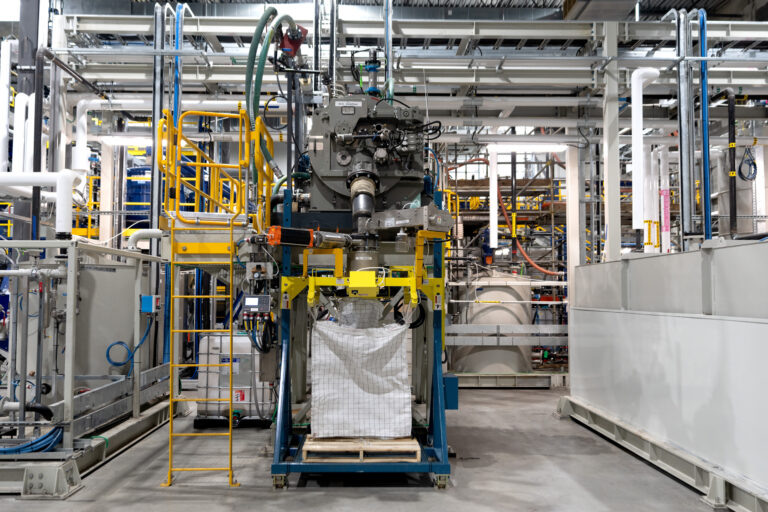Since March 2020, oil prices have been in such a free fall that politicians are now debating whether “oil is dead.” Financial experts had warned that the future of the oil sector was dim long before COVID hit. But the double impact of a supply war and the COVID-19 economic shutdown saw oil prices plummet: by April 20, the benchmark West Texas intermediate price of oil (for May delivery contracts) had sunk below zero. But rather than hearing this wake-up call and pausing to consider the long-term consequences of fossil fuel extraction, Saskatchewan hit snooze.
Indeed, Canada’s second-largest oil producer clings ever tighter to fossil fuel extraction, using the COVID crisis as an excuse to further subsidize the sector and allow it to continue to shirk its climate responsibilities. It is absurd for Saskatchewan to prop up oil and gas through this health crisis when that same industry is hastening an even greater crisis in the long term: the climate crisis, which will result in even greater and more widespread health, community and economic consequences.
While Canadians were reeling from the impact of COVID in early March, oil firms and associations as well as the oil-producing provinces began pressing the federal government for at least $15 billion in “relief.” The Canadian Association of Petroleum Producers submitted a regulatory rollback wish list to Natural Resources Minister Seamus O’Regan, requesting that the federal government defer, suspend or waive multiple environmental policies and regulations, including many that serve to reduce emissions. Prime Minister Justin Trudeau initially responded only with funds for orphan well cleanup and loans to help companies meet methane reduction standards. But in May he announced the Large Employer Emergency Financing Facility, to provide loans too risky to be undertaken by banks that would be backed by the federal government’s financial institutions.
In mid-April, Saskatchewan Premier Scott Moe, frustrated by the lack of federal relief, announced a three-part package for the oil and gas industry, allowing firms to extend filing deadlines on well data, incidents, auditing and other reporting requirements; extending mineral rights by one year; and reducing by 5 percent the oil and gas levy for 2020, with a fee deferral until October. The latter measure will reportedly save the industry $11.4 million. But this response exacerbates the looming problem of Saskatchewan’s outsized emissions at the very moment when the province needs to enact deep, rapid reductions to help stabilize the global temperature.
Saskatchewan’s emissions, which are predominantly from fossil fuels, are huge and soaring. The province has the highest per capita emissions in Canada, 244 percent higher than the national average. Viewed globally, it has the highest per capita GHG emissions in the world — higher even than OPEC nations like Kuwait. On an absolute basis, emissions were 77.9 MT of CO2 equivalent in 2017. Larger and more populous provinces emitted less: 78 MT for Quebec and 62.1 for British Columbia.
If Canada is going to meet its Paris commitments (or the more ambitious and science-based 1.5°C warming targets), the country — and Saskatchewan in particular — needs aggressive supply-side climate policy (targeting the producers of fossil fuels) in the form of eliminating subsidies for fossil fuel production and managing a controlled phase-out of production. COVID-19 has illustrated that dramatic declines in oil demand lead to significant emissions reductions, but even lockdown measures could not bring demand for fossil fuels (down by about 30 percent in April 2020 from the previous year) in line with the kinds of deep reductions needed to meet Paris targets. And as stay-at-home orders are lifted, demand for fossil fuels will rise again. Without attention to supply-side policy, any progress made toward reduction targets will be all for naught.
Putting job security for fossil fuel workers at the forefront of climate policy and improving the lives of those left out and marginalized by the carbon-based economy along the way are essential to deflating fear-based justifications for pouring public dollars into private fossil fuel firms and to building a broad constituency supportive of the low-carbon transition.
Winding down Canada’s fossil fuel production need not imply stranding fossil fuel workers and communities. Sunsetting Saskatchewan’s carbon-intensive sectors must be done via a “just transition,” where governments aid workers to transition to low-carbon sectors while providing services to vulnerable people — think free public transportation and social housing retrofits — or where fossil fuel firms employ workers to remediate the environmental liabilities left by their extraction. Examples abound of just transitions under way in Canada and beyond.
Keeping a focus on a just transition is one inoculation against rising “extractive populism” in Canada. Pro-oil, anti-carbon-tax rallies — often threaded with racist and anti-immigrant sentiment — originated in Saskatchewan and Alberta, but the movement has extended eastward, as seen in the pro-pipeline, anti-carbon-tax truck convoy that travelled from Alberta to Ottawa in winter 2019. Participants in these protests are afraid of job losses and the dire consequences for their families and communities, and they urge governments to bolster the fossil fuel sector, rather than curtail it or burden it with extra costs or regulations by attempting to reduce carbon emissions. Putting job security for fossil fuel workers at the forefront of climate policy and improving the lives of those left out and marginalized by the carbon-based economy along the way are essential to deflating fear-based justifications for pouring public dollars into private fossil fuel firms and to building a broad constituency supportive of the low-carbon transition.
Public support for a low-carbon shift is already surprisingly strong in Saskatchewan: in a 2018 survey, just over 50 percent of citizens supported a transition away from coal, oil and gas for the Saskatchewan economy immediately (17.3 percent) or over a 10-year period (33.3 percent). There is an opportunity here to grow a broad-based movement for a just transition on this foundation, now more than ever as we plan for a sustainable recovery from COVID.
But there are major barriers to developing the strong leadership from the provincial government — the locus of natural resource jurisdiction and energy grid authority — that will be needed to wind down the fossil fuel sector and replace it with a low-carbon economy. Saskatchewan’s two major political parties are united in their support for the oil industry. Even the more left-leaning New Democratic Party introduced new incentives to spur drilling while neglecting to regulate the industry as part of its climate change plans when it was last in government, from 2001 to 2007. Neither party is pressured by the kind of robust environmental movement that has urged neighbouring Alberta to give at least the impression of addressing the climate crisis. The silence of most environmental NGOs on Saskatchewan’s fossil-fuel-driven emissions is particularly resounding given the impacts of the recent fracking boom in the province.
The global community needs serious and immediate action from Canada to reach its Paris targets. Canada requires the same bold action from Saskatchewan. Demand-side policies like the carbon tax have polarized Saskatchewan citizens and stoked division and gridlock. Another path forward is a “made in Saskatchewan” just transition strategy that would use supply-side policies to curtail fossil fuel extraction and invest in alternative local employment and infrastructure. This policy approach would serve to harness the jurisdictional power of the province over natural resources and defuse the political opposition to “imposed” federal regulations.
COVID-19 is devastating, but climate breakdown will be worse. Saskatchewan is a linchpin province in Canada’s struggle to reduce emissions. Rather than protecting and boosting extraction under the cover of COVID, Saskatchewan must rein in emissions from its fossil fuel sector and join the just recovery movement.
Photo: Shutterstock/By Pictureguy













